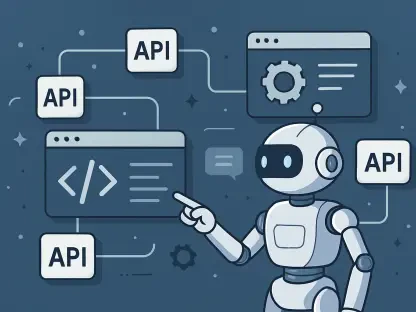Artificial Intelligence (AI) and Business Process Outsourcing (BPO) are converging in ways that are transforming industries. By integrating advanced data processing and predictive capabilities, AI is revolutionizing how BPO operations are conducted. This seamless fusion is leading to unprecedented efficiencies and enhanced decision-making across various business functions. The alliance between AI and BPO is not only optimizing current processes but is also paving the way for innovative approaches that were previously unattainable.
BPO has traditionally relied on human resources to execute a range of repetitive and time-consuming tasks. However, the advent of AI has introduced a paradigm shift. With AI, these tasks can be automated, allowing human workers to focus on more complex, high-value activities. The resultant synergy is a landscape where productivity is maximized, costs are reduced, and the utilization of human talent is optimized. As a consequence, businesses are better positioned to adapt and thrive in an increasingly competitive environment.
The Evolution of AI in BPO
AI’s integration into BPO has evolved significantly from its initial implementations in call centers. Early technologies such as automatic call directors laid the foundation by automating rudimentary tasks, but today, AI can handle much more complex operations. AI’s capability has grown exponentially, now encompassing technologies like Generative AI, which can create text, images, and videos, showcasing its versatility and transformative potential.
This evolution marks a major shift in how businesses approach outsourcing. Initially, AI tools were limited to simple automation functions, but they have since progressed to managing more intricate decision-making tasks. For example, predictive analytics can now extract valuable insights from colossal datasets, guiding companies towards data-driven decisions. This sophisticated level of AI application signifies a move towards more intelligent and informed BPO processes, fundamentally altering the operational landscape.
AI’s impact is no longer confined to administrative efficiency; it is also driving strategic initiatives within organizations. As AI continues to evolve, it is becoming indispensable across multiple industries, embedding itself into day-to-day operations. These advancements are not just about replacing human effort but enhancing overall capabilities, driving forward a new era of innovation within the BPO sector.
Enhancing Data Acquisition
One of the most significant contributions of AI to the BPO industry lies in its role in data acquisition. Data is the backbone of any effective BPO operation, and AI technologies like Optical Character Recognition (OCR) and Natural Language Processing (NLP) have brought transformative changes. OCR technology allows for the rapid integration of data into models, which previously would have required manual entry and was prone to errors. This capability alone dramatically speeds up processes and improves accuracy.
NLP, on the other hand, enables computers to understand and interpret conversational language and sentiment. This technology goes beyond simple keyword recognition to capture the nuances of human communication, making it invaluable for customer service and feedback analysis. Large Language Models (LLMs) further enhance these capabilities by leveraging deep learning techniques to interpret human language with high levels of accuracy. Applications such as ChatGPT and Yext exemplify how LLMs can be deployed to gather and process data efficiently, enhancing customer interactions and improving data analysis.
These advancements are particularly important for businesses seeking to refine their customer engagement strategies. By utilizing AI for data acquisition, companies can now interpret vast amounts of information quickly and accurately, enabling real-time decision-making and more personalized customer interactions. This improved data handling capability is not only a productivity booster but also a catalyst for more strategic and insightful business operations.
Streamlining Business Processes
AI is making its mark in BPO by streamlining various business processes, particularly through applications such as predictive analytics, intelligent document processing, chatbots, and digital assistants. Predictive analytics, for instance, enables businesses to extract actionable insights from large datasets, facilitating more informed and timely decision-making. This capability is especially valuable in areas such as market forecasting and risk management, where swift and accurate insights can translate into a competitive edge.
Intelligent document processing is another area where AI is driving significant efficiencies. This technology automates tasks that are typically tedious and prone to human error, such as data entry, form processing, and document classification. By automating these tasks, businesses can improve accuracy, reduce processing times, and free up human resources for higher-value activities. This not only enhances operational efficiency but also ensures that human talent is utilized in areas where it can have the most impact.
Chatbots and digital assistants, driven by NLP algorithms, are rapidly becoming integral to customer service operations. These tools can handle a wide range of queries, providing instant responses and improving customer satisfaction. As NLP technology continues to advance, chatbots are expected to take on even more complex customer interactions, further reducing the burden on human service agents. This evolution is not just about replacing human effort but augmenting it, allowing businesses to offer better and more responsive customer service while optimizing resource allocation.
Boosting Efficiency and Productivity
One of the most profound impacts of AI in BPO is its ability to enhance processing efficiency and productivity. AI systems can handle vast amounts of data quickly and with high precision, automating repetitive tasks that would otherwise consume substantial human resources. This automation enables workers to focus on more complex, strategic activities, elevating the overall productivity of the organization.
Automating routine tasks through AI leads to significant gains in efficiency. Tasks that once took hours or even days can now be executed in a fraction of the time, and with fewer errors. This efficiency not only reduces operational costs but also improves the quality and timeliness of outputs. The result is a leaner, more agile organization capable of responding swiftly to market changes and customer needs.
The integration of AI and BPO also fosters a more effective allocation of human talent. Employees can shift their focus from mundane tasks to higher-value activities that require creativity, problem-solving, and strategic thinking. This shift not only enhances job satisfaction but also drives innovation and business growth. By leveraging AI to handle routine operations, companies can maximize the potential of their workforce, positioning themselves for sustained success in a competitive landscape.
Advanced Predictive Capabilities
AI’s advanced predictive capabilities are increasingly being utilized in BPO solutions to forecast trends, consumer behaviors, and potential risks. By analyzing large datasets, AI can provide actionable insights that drive strategic decision-making and improve overall business outcomes. These predictive capabilities are particularly valuable in sectors such as finance, marketing, and customer service, where timely and accurate insights can make a significant difference.
Predictive analytics powered by AI helps businesses to anticipate market trends, identify potential risks, and tailor their offerings to meet consumer demands more effectively. This proactive approach not only enhances customer satisfaction but also enables companies to stay ahead of the competition. For example, by predicting consumer behaviors, businesses can design more targeted marketing campaigns, optimize inventory levels, and improve customer engagement strategies.
These AI-driven insights also play a crucial role in minimizing wait times and ensuring seamless communication across various platforms, from customer service to social media. By predicting and responding to consumer needs in real-time, businesses can enhance the customer experience and build stronger relationships. This ability to forecast and respond to market dynamics is transforming the BPO landscape, making it more strategic and data-driven.
Navigating Automation and Human Roles
While the advantages of integrating AI into BPO are clear, it is essential to consider the potential challenges. One significant concern is the risk of over-automation, which could lead to the elimination of crucial human interactions. While AI excels at handling routine tasks, certain activities require the empathy, creativity, and judgment that only humans can provide. Therefore, companies need to strike a balance, ensuring that AI complements rather than replaces human efforts.
Job displacement is another legitimate concern. The fear of AI wiping out entire job categories, particularly in areas such as customer service, is prevalent. However, the goal should be for AI to enable human potential rather than make human roles obsolete. By automating routine tasks, AI can free up employees to focus on more complex, value-driven activities. This shift not only boosts efficiency but also fosters innovation and business growth.
Striking the right balance between automation and human roles is crucial for successful AI integration. Companies need to ensure that AI is used as a tool to enhance human capabilities, not replace them. This requires thoughtful planning and a strategic approach, including reskilling and upskilling employees to prepare them for new roles. By navigating these challenges effectively, businesses can fully leverage the benefits of AI while maintaining a human touch in their operations.
Overcoming Integration Challenges
Introducing AI into existing BPO systems is not without its challenges. Successful integration requires ensuring error-free data and smooth system updates. Businesses must set clear goals and have realistic expectations about data usability and collection processes. These integration challenges necessitate meticulous planning and execution. Companies should be prepared to invest in the necessary infrastructure and training to fully leverage AI’s capabilities.
Clear communication and a strategic approach can help mitigate potential pitfalls. This includes setting realistic expectations about what AI can achieve and ensuring that all stakeholders are on board with the integration process. Continuous monitoring and adjustment are also crucial to address any issues that arise and to optimize the system’s performance.
Furthermore, businesses need to consider the ethical implications of AI integration. This includes ensuring data privacy and security, as well as addressing potential biases in AI algorithms. By taking a proactive approach to these challenges, companies can navigate the complexities of AI integration and achieve optimal outcomes. The ultimate goal is to create a seamless and efficient BPO operation that leverages the full potential of AI while maintaining ethical standards and human oversight.
Future Implications and Trends
One of AI’s most significant contributions to the BPO industry is its impact on data acquisition. Data is crucial for effective BPO operations, and AI technologies like Optical Character Recognition (OCR) and Natural Language Processing (NLP) have revolutionized this space. OCR technology allows for the swift integration of data, eliminating the need for manual entry and reducing errors, thus speeding up processes and enhancing accuracy.
NLP, in contrast, empowers computers to grasp and interpret human language and sentiment. This technology surpasses basic keyword detection to understand the subtlety of human conversation, making it incredibly valuable for customer service and feedback analysis. Large Language Models (LLMs) take these capabilities even further by using deep learning to interpret human language with exceptional accuracy. Applications like ChatGPT and Yext showcase how LLMs can efficiently gather and process data, improving customer interactions and data analysis.
These advancements are crucial for businesses aiming to improve their customer engagement strategies. By leveraging AI for data acquisition, companies can quickly and accurately interpret vast amounts of information, facilitating real-time decision-making and enabling more personalized customer interactions. This enhanced data handling not only boosts productivity but also serves as a catalyst for more strategic and insightful business operations.
Overall, AI significantly enhances the BPO industry by streamlining data acquisition and interpretation, ultimately leading to better customer engagement and smarter business decisions.









